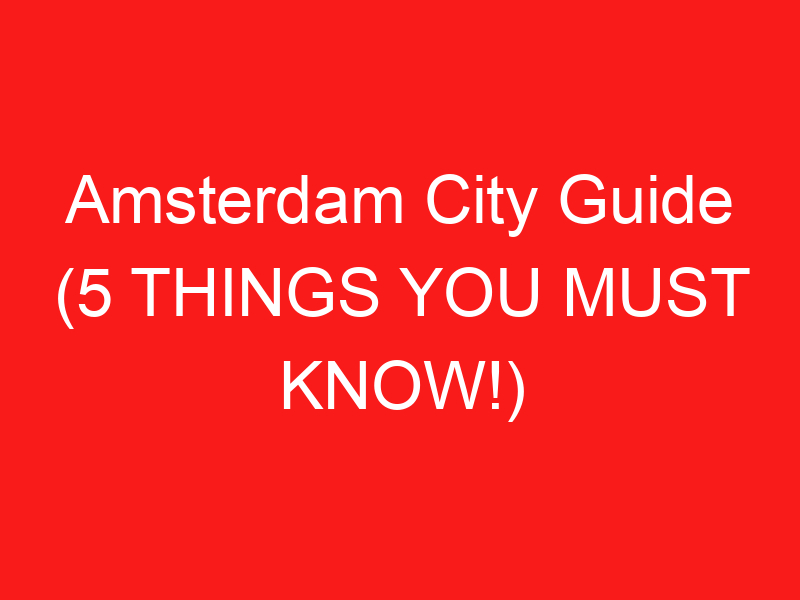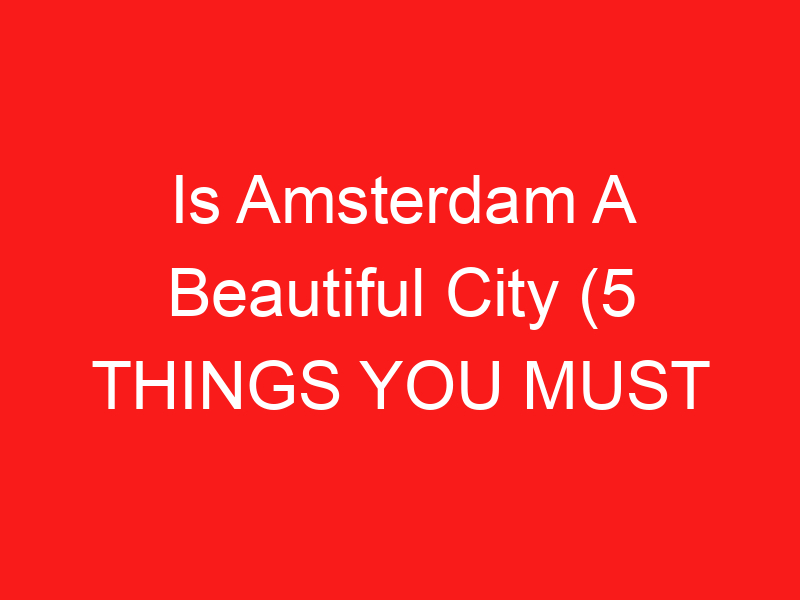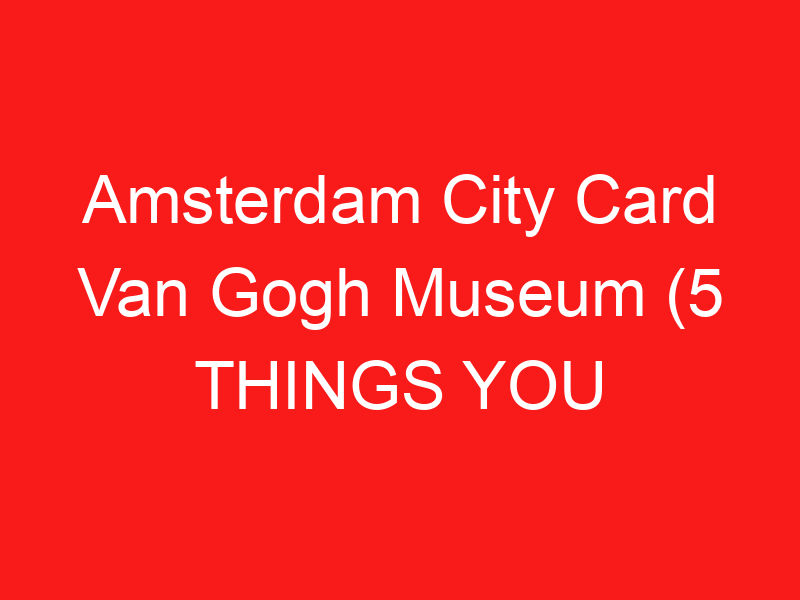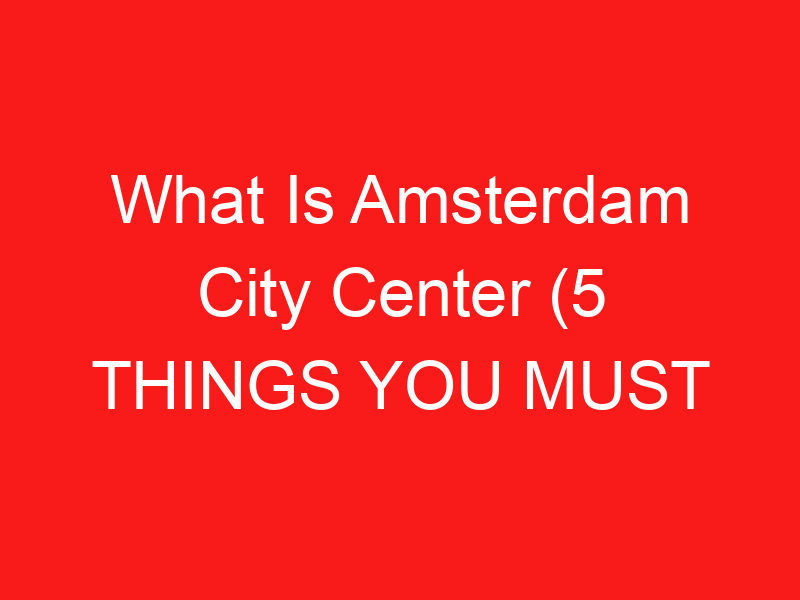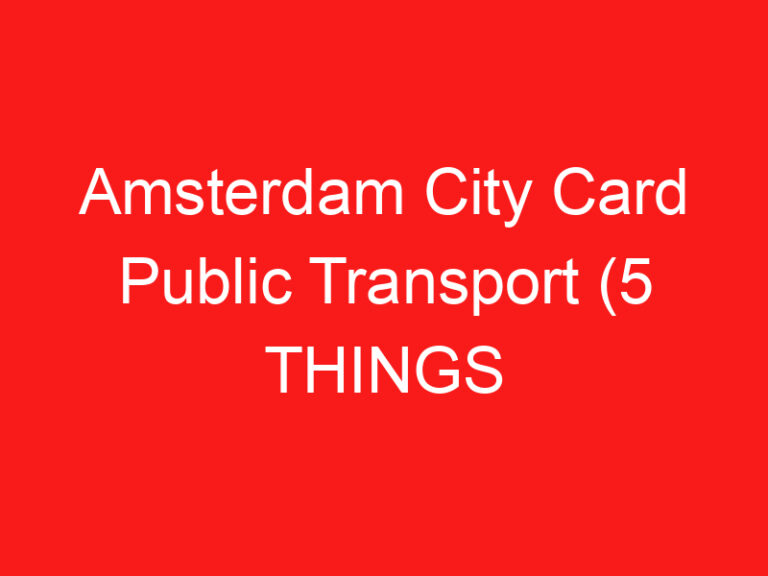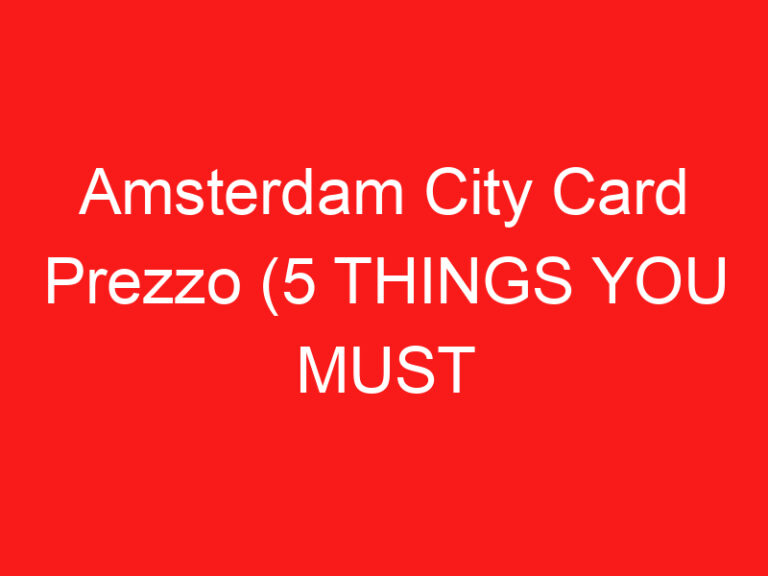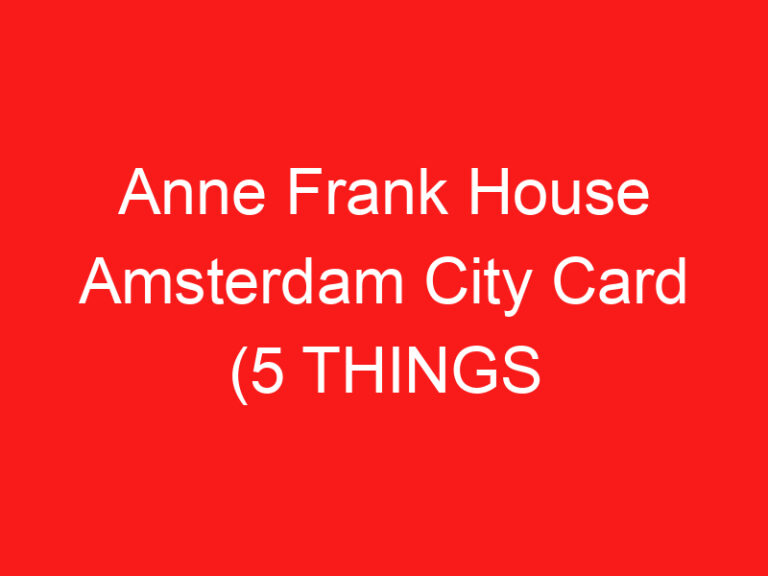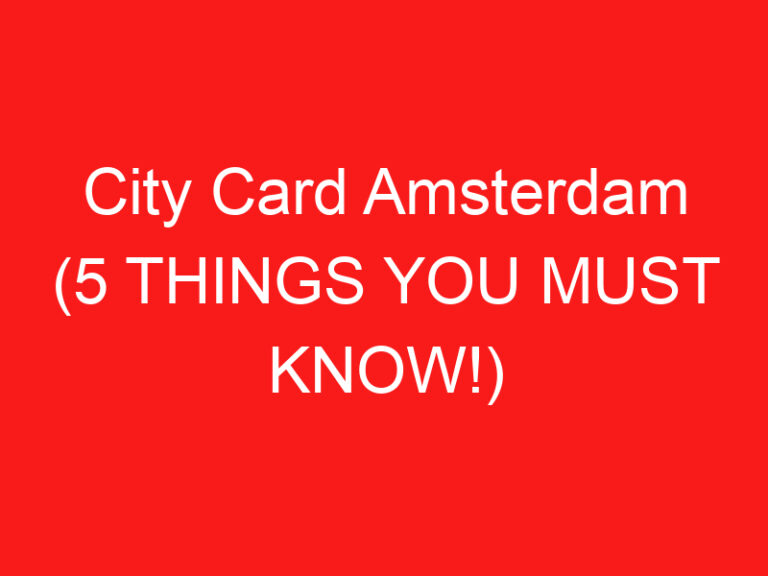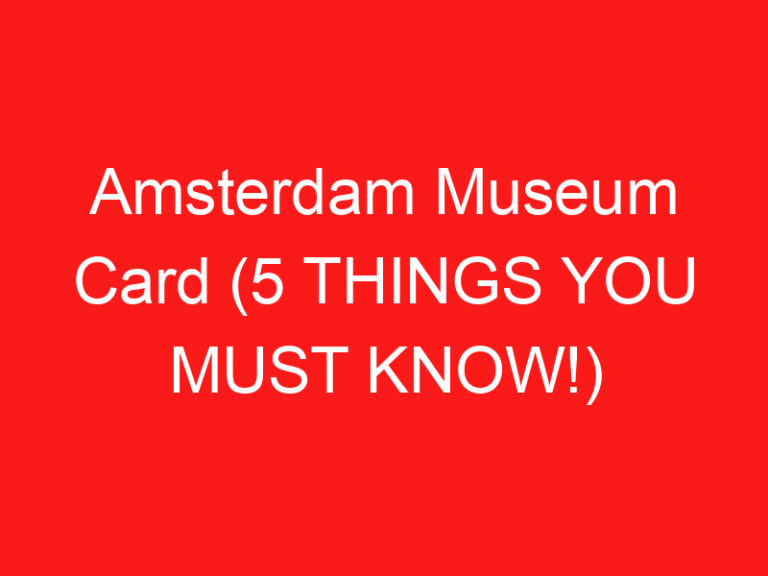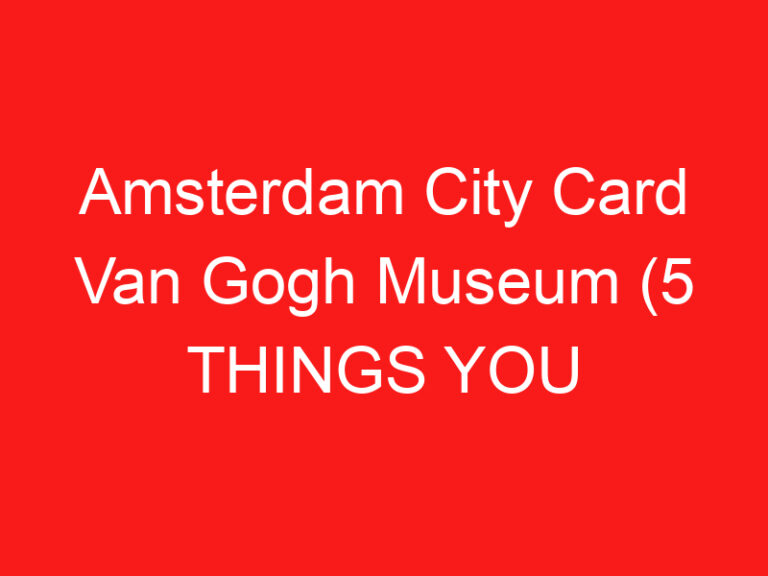Amsterdam City Guide (5 HAL YANG HARUS ANDA KETAHUI!)
Amsterdam, ibu kota Belanda yang semarak, is a city that seamlessly blends history, budaya, dan modernitas. Known for its picturesque canals, rich artistic heritage, and a unique lifestyle, Amsterdam is a destination that offers something for everyone. Whether you’re an art lover, a foodie, or simply looking to explore a new city, Amsterdam has it all.
Dalam panduan komprehensif ini, we’ll cover the **five essential things you must know** before visiting Amsterdam. From navigating its iconic neighborhoods to understanding its cultural nuances, this guide will equip you with the knowledge you need for an unforgettable experience in this enchanting city.
1. Understanding Amsterdam’s Neighborhoods
Amsterdam is a city of neighborhoods, each with its own distinct character and charm. To truly experience Amsterdam, it’s crucial to understand these areas and what they offer.
The city is divided into several districts, but the most notable ones include the **Jordaan**, **De Pijp**, **Museum Quarter**, **Red Light District**, and **Amsterdam North**.
The Jordaan is famous for its narrow streets, quaint buildings, and vibrant atmosphere. Originally a working-class neighborhood, it has transformed into a hub for artists, merchants, and young professionals. Di sini, you can find unique boutiques, kafe yang nyaman, and art galleries that reflect the city’s creative spirit.
De Pijp is known for its multicultural vibe and is home to the famous **Albert Cuyp Market**, where you can sample local delicacies and shop for fresh produce. This area is also dotted with trendy bars and restaurants, making it a hotspot for nightlife.
The Museum Quarter is where art lovers should head. It houses the **Rijksmuseum**, **Van Gogh Museum**, and **Stedelijk Museum**, showcasing works from the Dutch Masters to contemporary art.
The Red Light District, while often sensationalized, is a significant part of Amsterdam’s history and culture. It offers a glimpse into the city’s liberal attitudes and unique approach to sex work, which is legal and regulated in the Netherlands.
Terakhir, Amsterdam North is an up-and-coming area accessible by a short ferry ride from Central Station. This district boasts modern architecture, creative spaces, and the **Eye Filmmuseum**, making it a perfect spot for those looking to experience the city’s innovative side.
2. Navigating the City: Transportation Tips
Getting around Amsterdam is a breeze, thanks to its efficient public transportation system and bike-friendly infrastructure.
The city is renowned for its extensive network of trams, bus, and trains, all operated by **GVB**. A single ticket allows you to travel on any public transport within the city for a set duration, making it easy to hop from one neighborhood to another.
Namun, the best way to explore Amsterdam is undoubtedly by bicycle. With dedicated bike lanes and a cycling culture that is deeply ingrained in the lifestyle, renting a bike is highly recommended.
Several bike rental shops are scattered throughout the city, and many offer guided tours that can provide you with insights into Amsterdam’s history and hidden gems.
If you prefer walking, Amsterdam’s compact size makes it a pedestrian-friendly city. Strolling along the canals and through the parks is a delightful way to soak in the local atmosphere.
For those who wish to venture further, the **NS** trains connect Amsterdam to other major Dutch cities and even neighboring countries. Consider purchasing an **OV-chipkaart**, a smart card that can be used on all public transport and can be topped up as needed.
Singkatnya, whether you choose to cycle, walk, or use public transport, navigating Amsterdam is straightforward and enjoyable.
3. Must-See Attractions and Activities
Amsterdam is brimming with attractions that cater to every interest. While the city is famous for its museums and historic sites, there are also plenty of unique experiences that should not be missed.
First and foremost, no visit to Amsterdam is complete without exploring the **Anne Frank House**. This poignant museum is located in the actual house where Anne Frank wrote her diary during World War II. It provides a powerful insight into the horrors of the Holocaust and serves as a reminder of the importance of tolerance and human rights.
Another iconic site is the **Rijksmuseum**, home to masterpieces by Rembrandt and Vermeer. The museum itself is a stunning architectural marvel, and wandering through its halls is a journey through Dutch history and art.
For those interested in contemporary art, the **Stedelijk Museum** is a must-visit. It features a vast collection of modern and contemporary art, including works by artists such as Mondrian and Warhol.
If you’re looking for something different, consider a visit to the **Heineken Experience**. This interactive brewery tour offers a fun look at the history of the famous beer brand, complete with tastings and immersive exhibits.
Nature lovers should not miss the **Vondelpark**, Amsterdam’s largest park, where you can relax, have a picnic, or even enjoy free concerts during the summer months.
Terakhir, take a leisurely canal cruise to experience the city from a unique perspective. The UNESCO-listed canals are a defining feature of Amsterdam, and a boat ride allows you to see the beautiful architecture and charming houseboats that line the waterways.
4. Culinary Delights: What to Eat and Drink
Start your culinary adventure by sampling some classic Dutch snacks. **Bitterballen**, a savory meatball served with mustard, is a popular choice among locals. You can find these tasty bites in many bars and cafes throughout the city.
Don’t miss trying **stroopwafels**, a delicious treat made of two thin waffles filled with caramel syrup. These can be found at markets and street vendors, and they’re best enjoyed warm.
For a heartier meal, indulge in **haring**, raw herring fish served with onions and pickles. This traditional Dutch dish can be found at fish stalls around the city, and it’s a must-try for adventurous eaters.
Amsterdam is also home to a thriving international food scene. The **De Foodhallen** in Amsterdam West is a great place to experience a variety of cuisines under one roof. This indoor food market features stalls offering everything from sushi to gourmet burgers.
When it comes to drinks, Amsterdam has a vibrant café culture. Enjoy a cup of coffee in one of the many cozy cafes, or try a local beer at a traditional Dutch pub.
If you’re feeling adventurous, visit a **brown café**, a traditional Dutch pub with a warm and inviting atmosphere. These establishments serve local beers and often feature a menu of hearty Dutch dishes.
Akhirnya, for dessert, make sure to try **poffertjes**, fluffy little pancakes that are typically served with powdered sugar and butter. They are a delightful way to end your meal!
5. Cultural Etiquette and Local Tips
Namun, this honesty is appreciated, and it’s best to respond in kind. Politeness is valued, so a simple “**dank u**” (thank you) goes a long way.
When visiting museums and attractions, be respectful of the rules. Photography may be restricted in certain areas, and it’s important to follow any posted guidelines.
Public behavior is generally relaxed, but it’s advisable to keep noise levels down, especially in residential areas and public transportation.
Amsterdam is also known for its cycling culture. If you choose to rent a bike, remember to follow the rules of the road, signal when turning, and park your bike in designated areas to avoid fines.
Terakhir, be mindful of the city’s liberal attitudes towards cannabis and sex work. While these are legal and regulated, it’s important to approach them with respect and understanding.
Engaging with locals and asking questions can also enrich your experience, as the Dutch are often eager to share their culture and recommendations.
Frequently Asked Questions about Amsterdam City Guide
| Pertanyaan | Menjawab |
|---|---|
What is the best time to visit Amsterdam? |
The best time to visit Amsterdam is during the spring (April to May) when the tulips are in bloom, or in the fall (September to November) for pleasant weather and fewer tourists. |
Is it safe to walk around Amsterdam at night? |
Ya, Amsterdam is generally safe to walk around at night, but it’s always wise to stay aware of your surroundings and stick to well-lit areas. |
Do I need to speak Dutch to visit Amsterdam? |
Tidak, most Dutch people speak English fluently, so you can comfortably navigate the city without knowing the language. |
How can I avoid tourist traps in Amsterdam? |
To avoid tourist traps, seek recommendations from locals, explore lesser-known neighborhoods, and dine at places that are popular among residents. |
What should I wear when visiting Amsterdam? |
Dress comfortably and in layers, as the weather can be unpredictable. Comfortable shoes are a must for walking and cycling. |
Are there any cultural festivals in Amsterdam? |
Ya, Amsterdam hosts numerous cultural festivals throughout the year, including **King’s Day**, **Amsterdam Pride**, and the **Amsterdam Light Festival**. |
Can I use my credit card in Amsterdam? |
While many places accept credit cards, it’s advisable to carry some cash, especially for small purchases and in markets. |
Kesimpulan
Amsterdam is a city that captivates with its rich history, diverse culture, and vibrant atmosphere.
By understanding its neighborhoods, navigating its transportation, exploring its attractions, savoring its culinary delights, and respecting its cultural etiquette, you can make the most of your visit.
Whether you’re wandering through the charming streets of the Jordaan, cycling along the canals, or indulging in delicious Dutch treats, Amsterdam promises an unforgettable experience.
With this Amsterdam City Guide, you are now equipped with the essential knowledge to enjoy everything this remarkable city has to offer. Embrace the adventure, and let the magic of Amsterdam unfold before you!
